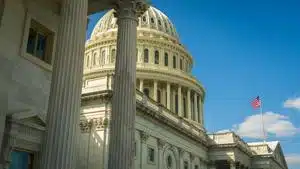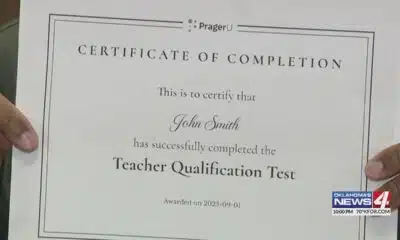(The Center Square) – Taking fluoride out of public water systems across the country would result in millions more rotten teeth and cost $9.8 billion over five years, according to a new study.
The study, published in JAMA Health Forum, found that if all 50 states removed fluoride from public water systems, kids would develop 25.4 million more decayed teeth over five years. The study noted that “tooth decay would disproportionately affect publicly insured and uninsured children compared to those with private dental insurance.”
After 10 years, the total number of decayed teeth would increase to 53.8 million at a cost of $19.4 billion, according to the study.
The simulation model used the National Health and Nutrition Examination Survey data of 8,484 participants.
It noted that “excessive fluoride exposure can cause mottled discoloration of the teeth” and that fluoride “becomes a neurotoxin at high levels.” The study further stated that “natural sources of drinking water with high levels of fluoride are associated with lower IQ scores.”
The study also noted that the U.S. National Toxicology Program released a monograph that concluded that drinking water with elevated fluoride levels has neurotoxic effects. That monograph “affirmed a lack of evidence for neurocognitive effects with fluoride exposure less than 1.5 parts per million, more than twice the amount of fluoridation recommended in public water systems by the U.S. Centers for Disease Control and Prevention.”
The study comes as Secretary of Health and Human Services Robert F. Kennedy Jr. seeks to remove fluoride from public water systems. In April, Kennedy said he would study the issue and make new recommendations on fluoride use in public water systems.
The American Dental Association criticized that plan.
“As dentists, we see the direct consequences fluoride removal has on our patients and it’s a real tragedy when policymakers’ decisions hurt vulnerable kids and adults in the long term,” ADA President Brett Kessler, D.D.S., said. “Blindly calling for a ban on fluoridated water hurts people, costs money, and will ultimately harm our economy.”
The JAMA study concluded that “despite the potential harms of excessive fluoride exposure, fluoridation at safe levels offers both individual and societal benefits that would be at risk.”
The study also noted the case of Calgary in Alberta, Canada. The city added fluoride to its public water system in 1991. The Calgary City Council voted in 2011 to remove fluoride. However, the city reversed course in March after an increase in cavities and a public vote. In the 2021 Civic General Election, 62% of voters supported fluoridation.
Calgary plans to reintroduce fluoride in drinking water starting at the end of June. To do so, it had to spend about $28.1 million on infrastructure improvements at Calgary’s two water treatment plants. Calgary expects to pay additional annual operating and maintenance costs of $1 million at both plants. It noted that “this translates into less than 10 cents per person, per month.”
After Calgary stopped fluoridating water in 2011, researchers at the University of Calgary conducted a study on tooth decay in a large sample of Calgary children and compared them to children in Edmonton, where fluoridation started in 1967 and remains in place.
“The research confirmed the removal of fluoride from drinking water had a negative impact on children’s oral health, where a significantly higher number of cavities were found amongst Calgary children compared to Edmonton children,” the city’s website noted.
Utah recently became the first state to ban the addition of fluoride to public drinking water. Utah lawmakers passed a measure that prohibits the addition of fluoride to public drinking water in Utah. That went into place on May 7, 2025.
Kennedy has urged other states to follow suit.
About 72% of municipal water systems in the U.S. provided fluoridated water in 2022, according to a report from the Centers for Disease Control and Prevention.
At least 12 states have laws mandating that communities of a certain size fluoridate the public water system, including California, Delaware, Georgia, Illinois, Kentucky, Louisiana, Minnesota, Mississippi, Nebraska, Nevada, Ohio and South Dakota, according to a report from the National Conference of State Legislatures. It noted at least 12 states have introduced bills prohibiting or repealing provisions related to the addition of fluoride in public water systems. Utah and Florida were the first states such legislation, according to the report.





















































